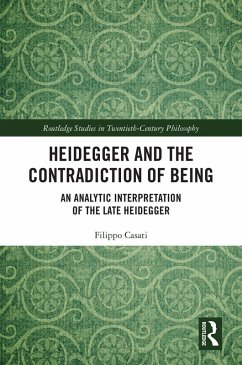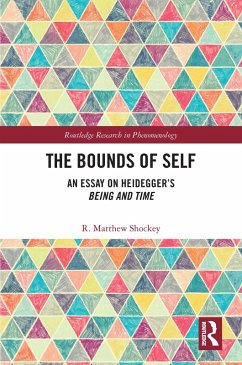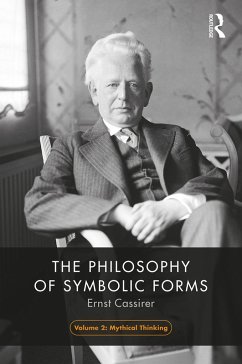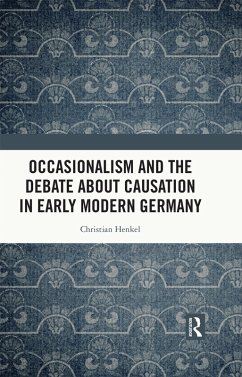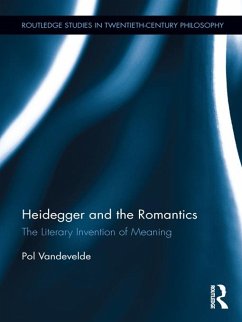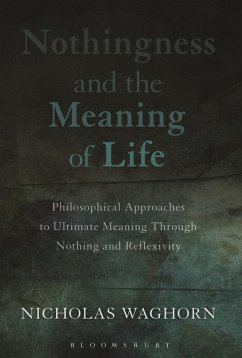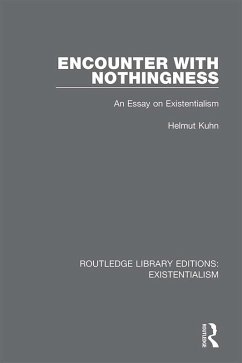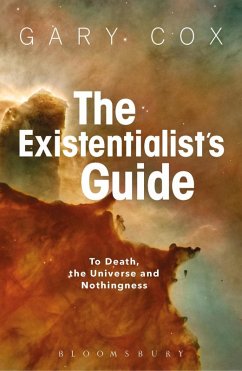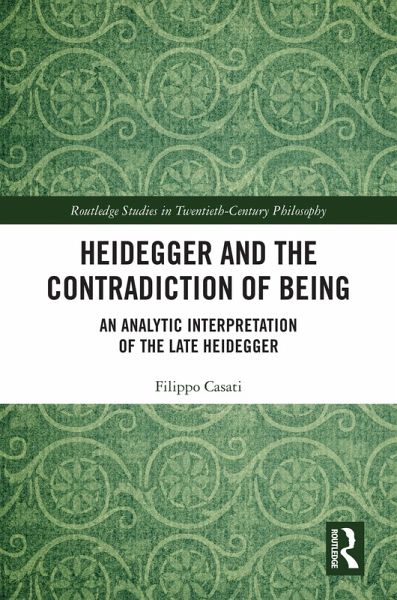
Heidegger and the Contradiction of Being (eBook, PDF)
An Analytic Interpretation of the Late Heidegger
Versandkostenfrei!
Sofort per Download lieferbar
39,95 €
inkl. MwSt.
Weitere Ausgaben:

PAYBACK Punkte
20 °P sammeln!
This book offers a clear, analytic, and innovative interpretation of Heidegger's late work. This period of Heidegger's philosophy remains largely unexplored by analytic philosophers, who consider it filled with inconsistencies and paradoxical ideas, particularly concerning the notions of Being and nothingness.This book takes seriously the claim that the late Heidegger endorses dialetheism - namely the position according to which some contradictions are true - and shows that the idea that Being is both an entity and not an entity is neither incoherent nor logically trivial. The author achieves ...
This book offers a clear, analytic, and innovative interpretation of Heidegger's late work. This period of Heidegger's philosophy remains largely unexplored by analytic philosophers, who consider it filled with inconsistencies and paradoxical ideas, particularly concerning the notions of Being and nothingness.
This book takes seriously the claim that the late Heidegger endorses dialetheism - namely the position according to which some contradictions are true - and shows that the idea that Being is both an entity and not an entity is neither incoherent nor logically trivial. The author achieves this by presenting and defending the idea that reality has an inconsistent structure. In doing so, he takes one of the most discussed topics in current analytic metaphysics, grounding theory, into a completely unexplored area. Additionally, in order to make sense of Heidegger's concept of nothingness, the author introduces an original axiomatic mereological system that, having a paraconsistent logic as a base logic, can tolerate inconsistencies without falling into logical triviality.
This is the first book to set forth a complete and detailed discussion of the late Heidegger in the framework of analytic metaphysics. It will be of interest to Heidegger scholars and analytic philosophers working on theories of grounding, mereology, dialetheism, and paraconsistent logic.
This book takes seriously the claim that the late Heidegger endorses dialetheism - namely the position according to which some contradictions are true - and shows that the idea that Being is both an entity and not an entity is neither incoherent nor logically trivial. The author achieves this by presenting and defending the idea that reality has an inconsistent structure. In doing so, he takes one of the most discussed topics in current analytic metaphysics, grounding theory, into a completely unexplored area. Additionally, in order to make sense of Heidegger's concept of nothingness, the author introduces an original axiomatic mereological system that, having a paraconsistent logic as a base logic, can tolerate inconsistencies without falling into logical triviality.
This is the first book to set forth a complete and detailed discussion of the late Heidegger in the framework of analytic metaphysics. It will be of interest to Heidegger scholars and analytic philosophers working on theories of grounding, mereology, dialetheism, and paraconsistent logic.
Dieser Download kann aus rechtlichen Gründen nur mit Rechnungsadresse in A, B, BG, CY, CZ, D, DK, EW, E, FIN, F, GR, HR, H, IRL, I, LT, L, LR, M, NL, PL, P, R, S, SLO, SK ausgeliefert werden.




